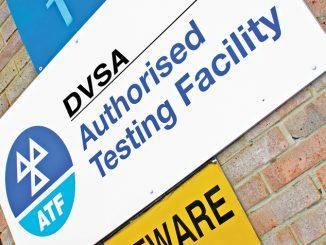
Conservative peer Lord Attlee has weighed in on the side of the logistics industry by tabling an amendment which could end the DVSA’s monopoly on HGV testing.
Lord Attlee’s amendment to the government’s Business and Planning Bill calls for the government to allow Authorised Testing Facility (ATF) operators to carry out road worthiness HGV and trailer tests.
If approved by the House of Lords, the amendment could open up HGV testing to ATF operators.
The peer’s amendment comes as the backlog of thousands of HGV tests delayed by the Covid-19 lockdown continues to mount, threatening to bring major disruption to the logistics industry’s peak period.
The backlog has led to increasing calls from the haulage industry for a more efficient and streamlined HGV testing system supported by accredited ATF testers
Speaking to motortransport.co.uk, Lord Attlee, who ran a vehicle recovery firm before becoming a politician, said: “The current situation is wrong. If a private individual can be certified to pass an aircraft as fit to fly and a 1,000 tonne crane can be inspected by a private sector operator then why is it not the same for lorries?
Read more
- MOT testing backlog will likely mean job cuts, warns ATF operator
- Industry slams DVSA decision to reject delegated testing to help tackle HGV testing backlog
- Call for DVSA to delegate HGV testing to tackle backlog created by pandemic lockdown
“What we need are DVSA accredited, time served technicians from the private sector, who are assessed by the DVSA to ensure they meet the right standards. It just makes sense.”
The ATF Operators Association (ATFOA) welcomed Lord Attlee’s backing this week. ATFOA has been campaigning for years for its members to be allowed to become accredited HGV testers.
ATFOA president Stephen Smith said: “We are really pleased to have Lord Atlee supporting our campaign. We call on the House of Lords not to vote along party lines to defend an outdated system but to recognise that this is the right thing to do, because this is the best and safest solution for all industry stakeholders.”
RHA policy director Duncan Buchanan also welcomed the peer’s amendment: “The DVSA’s monopoly on HGV testing is out of date, massively inefficient and more akin to the 1970s than it is to the 21st century," he said.
“The reality is the system cannot cope in normal times and as we have seen during lockdown as an horrendous backlog of tests has built, the current system clearly cannot cope with the impact of Covid-19, nor will it be able to cope going forward so it has to change and we need it to change now.”













